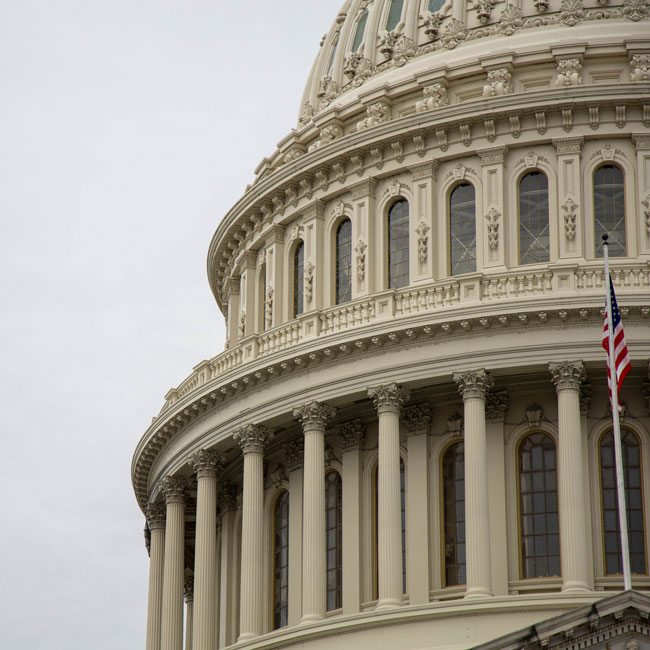
What we owe each other: Intergenerational and intertemporal justice
Opinion + AnalysisPolitics + Human RightsClimate + Environment
BY Pia Curran 3 MAY 2024
According to the United Nations, the global population will increase by two billion over the next thirty years. This gives the idea of intergenerational justice particular weight. But philosophers struggle to discern the existence, nature and extent of any moral duty owed to future generations.
Issues of remoteness, non-identity, and economics leave many fixed in the parochialism of the present. Using British philosopher, Derek Parfit’s ‘person-affecting principle’ and the threshold notion of harm to argue that current generations do owe a moral duty to their heirs, existential threats to present and future people, such as climate change, should be dealt with through a pragmatic, sociological focus on distributive justice, encouraging a reinterpretation of justice as inter-temporal.
Relations between generations are ‘relations of domination’. Future people either have not come into existence, or they are too young to access the full rights of a democratic citizen. For some, this belies a ‘moral imperative to give voice to the voiceless’. Others resist giving ethical considerations to non-specific, non-existent things, and the future consequences of our actions are not certain. Indeed, future generations have not done anything to warrant our consideration, so obligations must come from some intrinsic value placed on human life.
Israeli political scientist, Avner de-Shalit suggests the existence of a ‘transgenerational community’ to which we owe a duty because we share ‘cultural interaction and moral similarity’. But deciphering how far into time this community stretches is difficult, and de-Shalit does not adequately address the different levels of obligation felt towards today’s youth and remote future people, with whom it is difficult to feel part of a community.
A more convincing argument is Derek Parfit’s ‘person-affecting principle,’ the ‘fundamental ethical requirement that humans have an obligation not to affirmatively harm a person.’
If everyone should be treated with respect and dignity no matter when they are born, we ought not to make decisions that will cause harm to future persons.
This deontological position is strengthened when considering an adaptation of Australian philosopher Peter Singer’s classic thought experiment. If it is equally important for an adult in Nepal who sees a drowning child to save the child as it is for you to save a drowning child in front of you, then spatial distance must be irrelevant to moral responsibility to prevent harm. By extension, why should temporal distance be any different? Tensions surrounding the personhood of the unborn should not keep present people from refraining from acts that will harm the interests of future people, whether or not they actually come into existence.
But Parfit does not define the meaning of ‘harm’, nor what level of care is owed to future generations. If a policy is criticised because it is predicted to worsen future standards of living, it could be said that all actions have some consequence for the lives of future people. If the act results in certain people not coming into existence, they cannot really be said to have been ‘harmed’ by the policy, because they never became a person.
Defining ‘harm’ through the notion of the threshold abates this problem. It does not require individuals to be worse off at a point in time than they otherwise would had a harmful act not been performed, only that they are worse off than they ought to be. Individuals are harmed if they come into existence in a sub-threshold state. This extends the notion of moral responsibility and intrinsic rights across time so that, ‘no child should do worse than some minimum standard that is determined by reference to the entire society,’ taking basic requirements such as food, water and shelter as a given.
Determining this threshold, however, is difficult. Buchanan suggests ‘better than our current median’ as an antidote to ‘better than me,’ because this acknowledges intragenerational disadvantage. The economic practice of ‘discounting’ the future, by contrast, entails a willingness to act on a preference for current generations. This discount rate ‘dramatically diminishes the significance of policy effects on future generations.’
The issue then becomes one of balance. How do we balance our obligations not to inflict harm on ourselves, and the sometimes competing aim to not inflict harm on future individuals? Focusing on fiscal policy, Buchanan suggests a focus on ‘distributive justice,’ pressing the need to weigh all claims and redistribute resources away from the ‘richest’ to the ‘poorest,’ irrespective of when those people may be alive. For example, higher taxation for the rich and more investment in welfare and public infrastructure of the future. The aim is to reach a level of wellbeing ‘according to which both currently and future living people are able to reach a sufficientarian threshold.’
Issues posing existential threats to present and future people have a particular moral primary in terms of harms to avoid. Climate change, especially rising global temperatures, poses irreversible and universal damage. Using the threshold concept of harm, one assumes that future generations ought to live in a clean and safe environment, and current generations ought to act in ways that avoid environmental degradation. But, given that sustainable energy is more expensive than fossil fuels, there exists a tension between economic growth and ecological protection.
Irish sociology lecturer, Tracey Skillington takes a sociological rather than philosophical approach, arguing that ‘the needs of the capitalist present have taken precedence over all other concerns,’ noting the insufficient efforts taken to prevent environmental harm. If all focus is on present concerns, justice is not equitably distributed to the future. Skillington sees this as a flaw in the present liberal-democratic political infrastructure.
Youth are taking legal action against governments to assert their right to inherit a safe environment. In Australia, a temporarily-established common law duty of care to protect young people from climate change was reversed by the Full Bench of the Federal Court. It held that the previous judge’s reasoning was too expansive and endorsed an analysis based only on narrow legal principles of negligence. This view does not consider that intergenerational issues arise slowly, and legal justice should be interpreted in a manner that extends beyond the political and economic realities of the present if we are to prevent harm to future generations.
Scottish philosopher, William MacAskill’s ‘longtermism’ encourages a broader gaze, asking politicians to see beyond the short term reality of a carbon economy to universal and inalienable collective rights. This ‘intertemporal’ approach to justice and the role of institutions recognises humanity as bound not only by biology, but ‘shared ecological resources and a common cosmopolitan project as well’. Through national and international cooperation, current generations can minimise harm by creating a threshold state that satisfies the right to a safe environment and equitably distributes justice between present economics and future longevity.
The notion that future generations can suffer harm at the hands of present policies creates a moral obligation to avoid acts that ensue a sub-threshold state. This state is determined by reference to the society as a whole, but as a minimum can be expected to include basic necessities such as a clean environment. Democratic institutions should adjust their gaze when formulating policy, recognising long-term implications and understanding justice as a concept that exists across and between time.
‘What we owe each other: Intergenerational and intertemporal justice‘ by Pia Curran is one of the Highly Commended essays in our Young Writers’ Competition. Find out more about the competition here.

Ethics in your inbox.
Get the latest inspiration, intelligence, events & more.
By signing up you agree to our privacy policy
You might be interested in…
Opinion + Analysis
Climate + Environment, Politics + Human Rights
Australia Day: Change the date? Change the nation
Opinion + Analysis
Politics + Human Rights
We are witnessing just how fragile liberal democracy is – it’s up to us to strengthen its foundations
Opinion + Analysis
Business + Leadership, Politics + Human Rights
Why fairness is integral to tax policy
Opinion + Analysis
Business + Leadership, Politics + Human Rights




